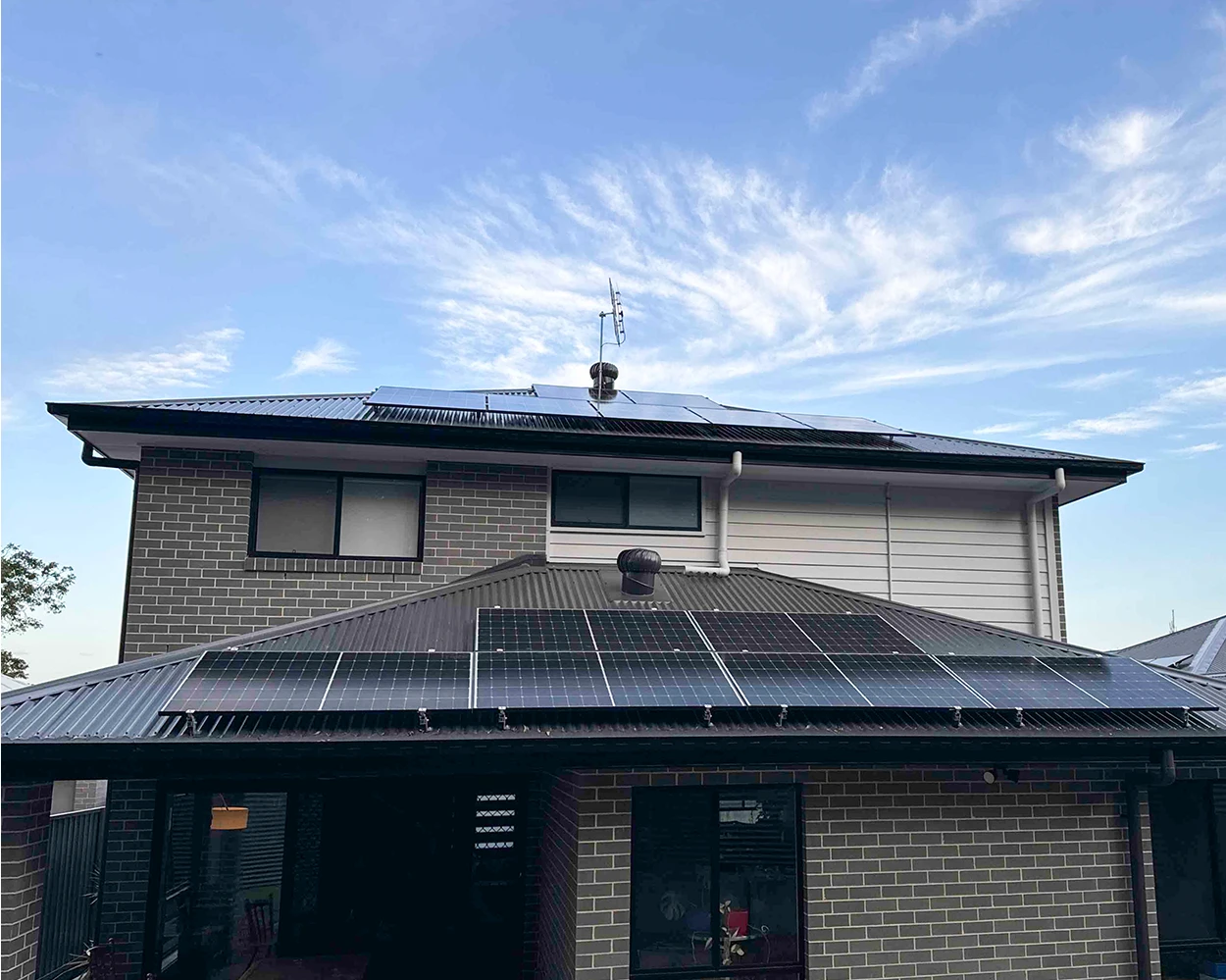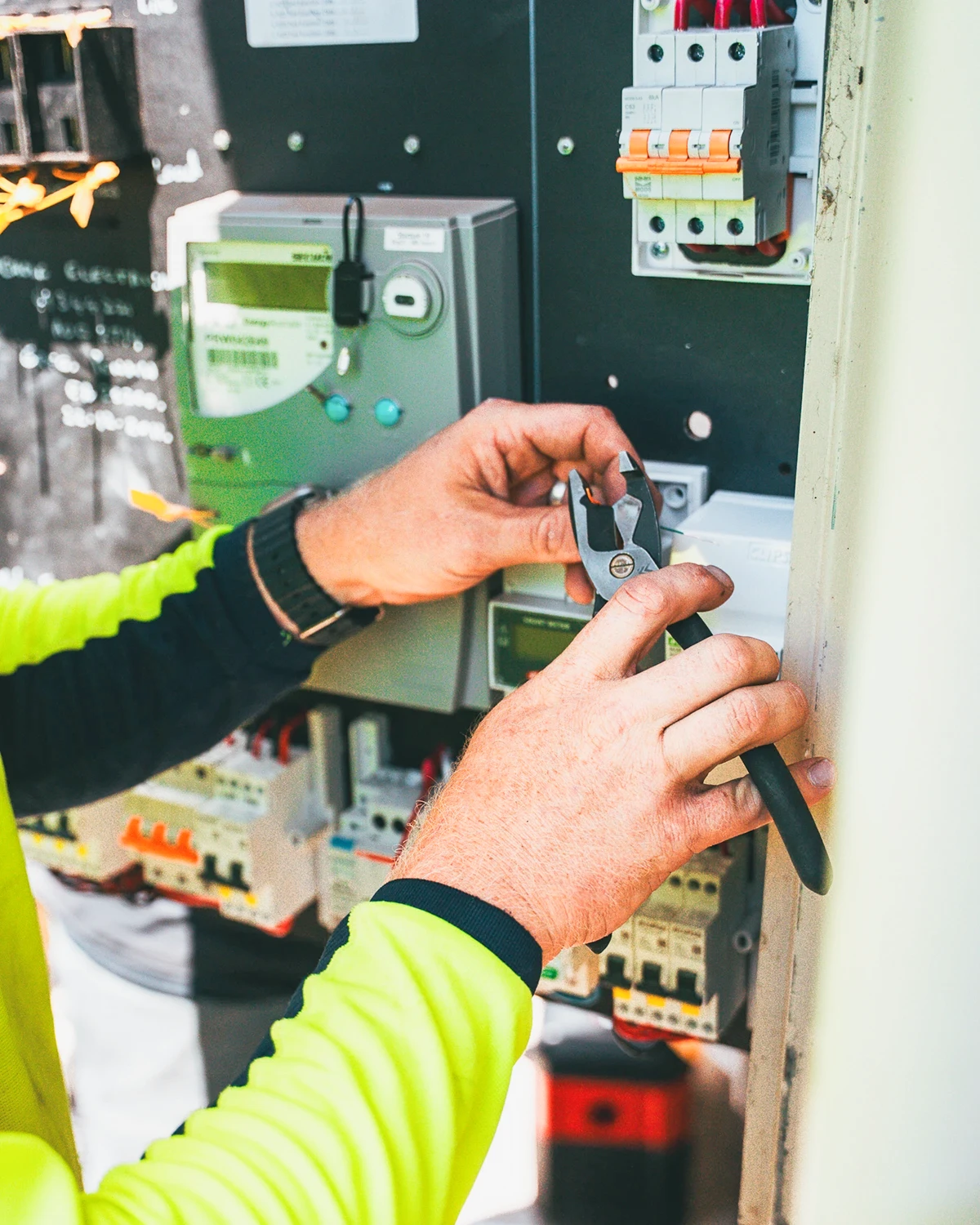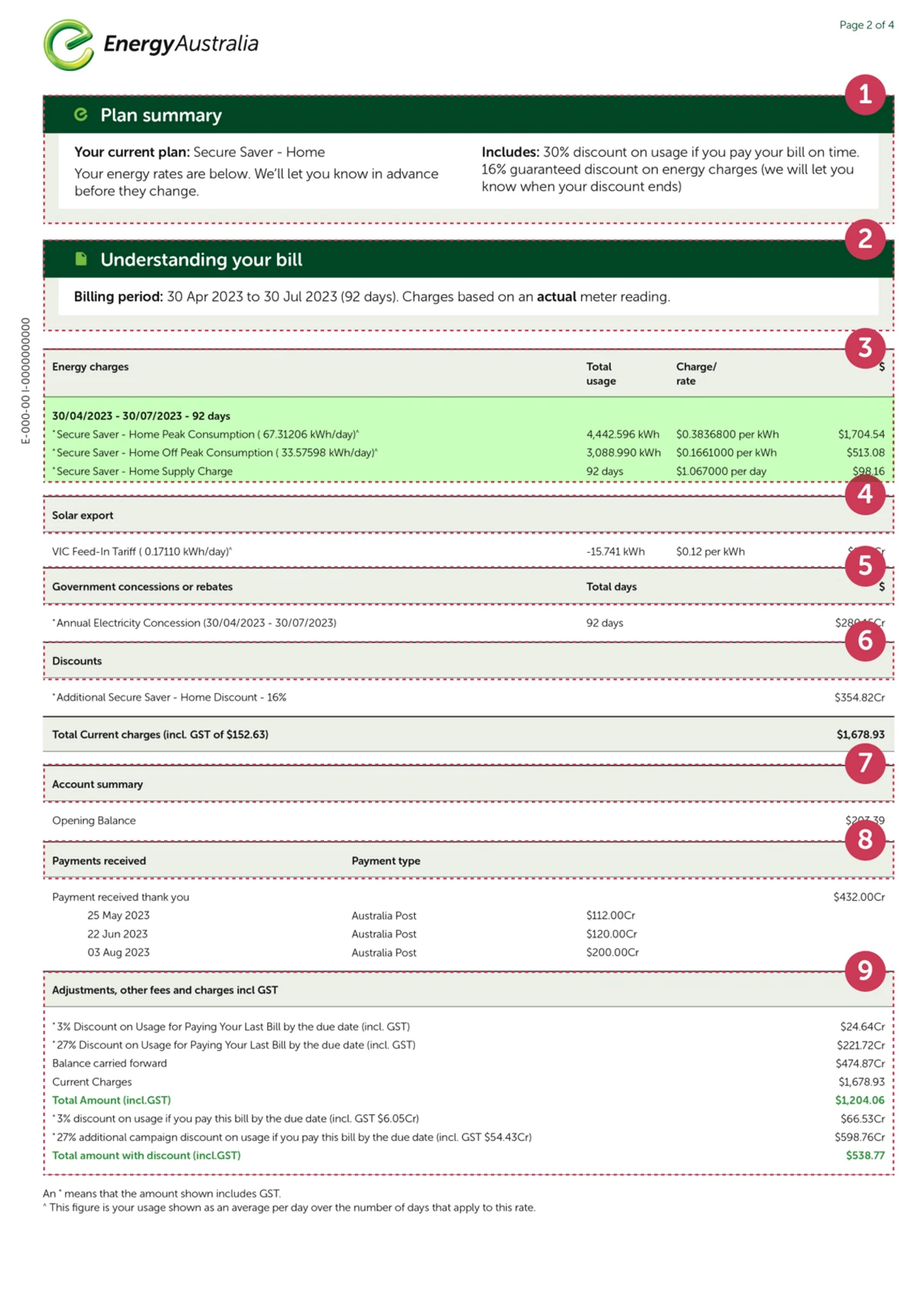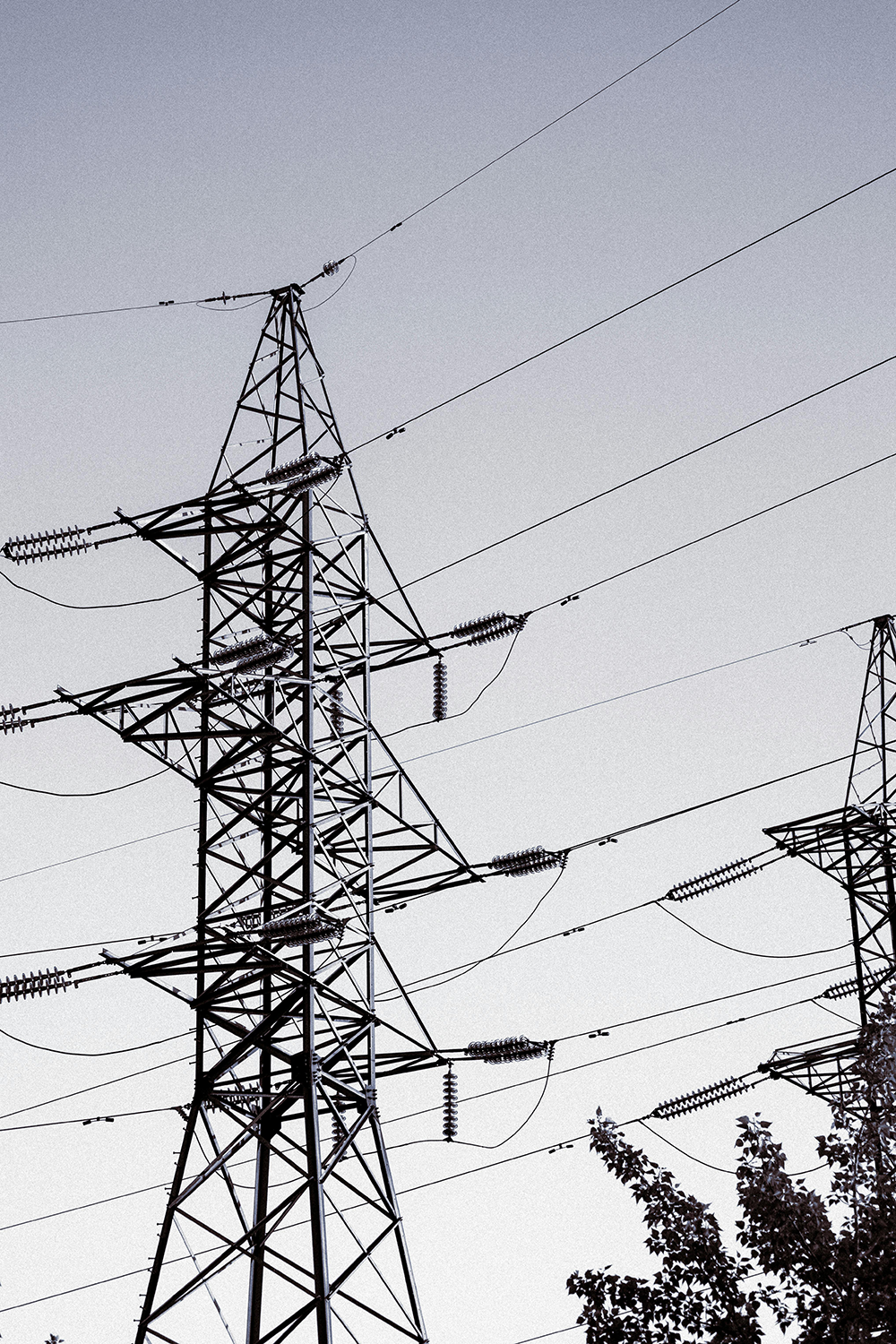Take Advantage of the Federal Battery Rebate & Maximise Your Savings Today
Take Advantage of the Federal Battery Rebate & Maximise Your Savings Today
Posted 15 Jul
Want the latest in energy, solar, and savings?Subscribe to our newsletter – we don’t spam!
When it comes to talking about electricity, many use the terms 'power' and 'energy' interchangeably, but did you know these actually
represent to different aspects to your electricity? It is important to understand these 2 terms, especially if you're looking at investing
in solar, battery storage, or electric vehicle charging in Australia.
The main difference between power and energy is how power is simply measures the rate of electricity, where energy represents the amount of time that power is being used.
How are Energy & Power are Calculated? Energy (kWh) = Power (kW) × Time (hours)
Understanding the differences between power and energy can help you optimise your energy usage, choose correct appliance sizes, and better-plan for energy-specific systems like solar and battery.
What's an Example of Power vs. Energy? Using a very basic example, think of a large water tank, it has a large capacity and can store water. When required the tap is turned on and the water rushes out of the tank. In this scenario, the water flowing out of the tap is what you would call power, and the amount of time that the tank could sustain that flow is energy.


What is Electrical Power? Power refers to the rate or speed of electricity - the amount of electricity transferred at any single point in time.
What is a kW of electricity? Electrical power is measured in Watts (W), Kilowatts (kW), and Megawatts (MW).
What is power used for? The term Power is mostly used in determining the amount of energy an appliance can consume or produce at a single point in time.
What's an Example of Electrical Power? An example of power could include appliances like a 10kW solar system which its size is determined by the amount of power it can produce at its peak, or a kettle that consumes around 2-3kW of power to boil water.
How to Calculate Power (kW)? You can calculate power by multiplying both the voltage (V) and current (A). (Power (W) = Voltage (V) × Current (A). For example, if an appliance runs at 230V and 10A, it would consume 2.3kW of power. (230V × 10A = 2300W (2.3kW).
What is Electrical Energy? Energy refers to the amount of electricity used over time.
What is a kWh of electricity? Measured in Watt-hours (Wh), Kilowatt-hours (kWh), and Megawatt-hours (MWh), energy looks at the amount of power over a period of time - in this case an hour.
What is Energy used for? Energy is used for measuring an appliance's or household's consumption over a period of time. Using the kettle example of up to 3kW power, over an hour, it would consume 3kWh of energy. [3kW × 1h = 3kWh].
What is Measured in Energy? Elements like your energy bill are measured by energy as it measures to amount of power you consume over time - usually quarterly.

Power is the rate of electricity being consumed or moved.
Power = Watts (W) & Kilowatts (kW)
Energy is the amount of power being used over time.
Energy = Watt-hours (Wh) & Kilowatt-hours (kWh)

What is a kW and kWh? Watts (W), Kilowatts (kWh), Watt-hours (Wh), and Kilowatt-hours (kWh) are all units of measurement for both electrical power and energy.
What's the difference between Watts & Watt-hours? Watts (W) & Kilowatts (kW) measure the rate of the appliance power production or consumption. Watt-hours (Wh) & Kilowatt-hours (kWh) measure the amount of power over time, which is energy.
[Power x Time = Energy]
Both units are used to measure a range of appliances for homes throughout Australia, with fridges, toasters, water heaters all requiring varying electrical specifications.
Similar to our kettle example earlier, another example of kW vs. kWh could be how a solar battery could provide 10kW of energy capacity. This is different to the amount of power it can deliver at any given time.
Both power and energy are used for all scales of devices and appliances to accurately determine the kW and kWh specifications. Watt-hour
is generally used for small appliances like phone batteries, where kW is mostly used for home appliances and solar systems,
and GWh being used for measuring coal power station yearly electricity production.
W = watt
kW = kilowatt (1000W)
MW = megawatt (1,000,000 W)
GW = gigawatt (1,000,000,000 W)
TW = terawatt (1,000,000,000,000 W)
Wh = watt-hour
kWh = kilowatt-hour (1000Wh)
MWh = megawatt-hour (1,000,000 Wh)
GWh = gigawatt-hour (1,000,000,000 W)
TWh = terawatt-hour (1,000,000,000,000 W)
If you're wondering why we measure energy and power differently, both serve separate purposes for understanding and working with electricity. By measuring power, you can identify elements like production rates which can be important for designing and installing electrical systems.
For example, identifying the maximum power rating for a solar inverter or home appliance can mean the difference between safe operation or overloading circuits or equipment.
Measuring energy on the other hand helps identify how much electricity is being consumed or produced over time. It can also help shape what kind of system is right for you, taking into account cost, efficiency, and suitability over time.
Overall, measuring energy and power enables utility companies, electrical engineers, and customers better-plan systems to avoid safety issues, over and under supply, inaccurate bills, and energy waste and inefficiencies.

Power is used for systems like solar, EV chargers, and inverters, where energy is primarily used for energy storage, bills, and household
consumption. Here's a list of what is measured by power and energy.
POWER (kW) |
ENERGY (kWh) |
| Solar Panels |
Battery Storage |
| EV Chargers | Electricity Bills |
| Solar Inverter |
Electric Vehicle Range |
| Generator Power Output | Daily Solar Production |
| Grid Connection Limits |
Feed-in-Tariffs |
| Power Ratings | General Household Consumption |
| Battery Charge/Discharge Rate | Backup Battery Duration |

So we've looked at power and energy in appliances and solar systems, but how does power and energy relate to electric vehicles? Using EVs as an example, we're met with an abundance of places where both power and energy are used.
Firstly, every electric car battery is measured in energy or kilowatt-hours, like how the BYD Sealion 7 has an 82.5kWh battery capacity.
This is not to be confused with phrases like '390kW of power'. This isn't referring to the battery capacity, but instead the power that the electric motor can output at its peak.
When it comes to electric vehicle charging, chargers are measured by power or kilowatts that refer the amount of power the charger can deliver to the battery. Chargers can range in power outputs, depending on AC or DC, however home AC chargers are usually 7-22kW depending on if your home is single or three-phase.
Electricity bills are measured in kilowatt-hours (kWh), as it refers to the total amount of energy you consume over time - usually each quarter. Energy providers look at both the amount of power consumed, and the duration it is consumed for.
Are Solar FiTs Energy? Additionally, you'll notice solar feed-in-tariffs are also measured in energy. This is to determine the amount of power you produced over an amount of time.
What is Power vs. Energy for Batteries? If you have a solar battery like Tesla Powerwall 3, it will have a total energy capacity which will in this case consist of 13.5kWh of energy, meaning if you're drawing 6.75kW of power from the battery, it will last 2 hours.
Why aren't Energy Bills measured in Power? If energy providers were to determine your bill based on power consumption, they would only be able to see the amount of power you're drawing at any given moment. Using energy is essential to finding out how much power a home or business has consumed over an amount of time to accurately bill based on usage.


Both power and energy are essential to measuring electricity and component specifications throughout Australia, and can also help you understand your energy better.
Whether you're interested in getting a solar and battery system, you're a new electric vehicle owner, or just an avid reader looking to increase your electrical knowledge, you now know what the difference between energy and power is.
For more information and Newcastle and Maitland-based solar and battery installations, please get in contact with us.
Below are some frequently asked questions about power vs. energy and kW vs. kWh.
Learn about the May 1st Federal battery rebate changes in Australia and what they mean for home battery costs, solar savings, and discounts.
Read moreCompare Tesla Powerwall 3, Sungrow SBR & SBH, GoodWe ESA, Fronius Reserva, and BYD Battery-Box to find the best home battery for Australia.
Read moreExplore how Australia’s Q4 2025 solar and battery data highlights a major milestone: majority renewable contribution to daytime electricity demand.
Read moreHow rooftop solar helped NSW avoid blackouts during the 2026 heatwave, reducing grid stress & supporting record electricity demand across Newcastle.
Read moreExplore Elite Power Group's solar and battery installation statistics for 2025, and how we performed over this year of operation in Newcastle and Maitland.
Read moreExplore the differences between peak shaving and load shifting and how it can maximise solar & battery, reduce your bills and grid reliance in Australia.
Read moreRenewable News Articles
We've invested in becoming fully-licenced and qualified installers to ensure Newcastle homes and businesses
get the best systems and installations possible. We want to assist Newcastle's renewable energy revolution with quality systems.
Certified solar system installers near you.
Get CEC-Approved Battery Installations.
Fully-licenced electricians in Newcastle.
Convenient EV charging stations for properties.
Leave a Comment